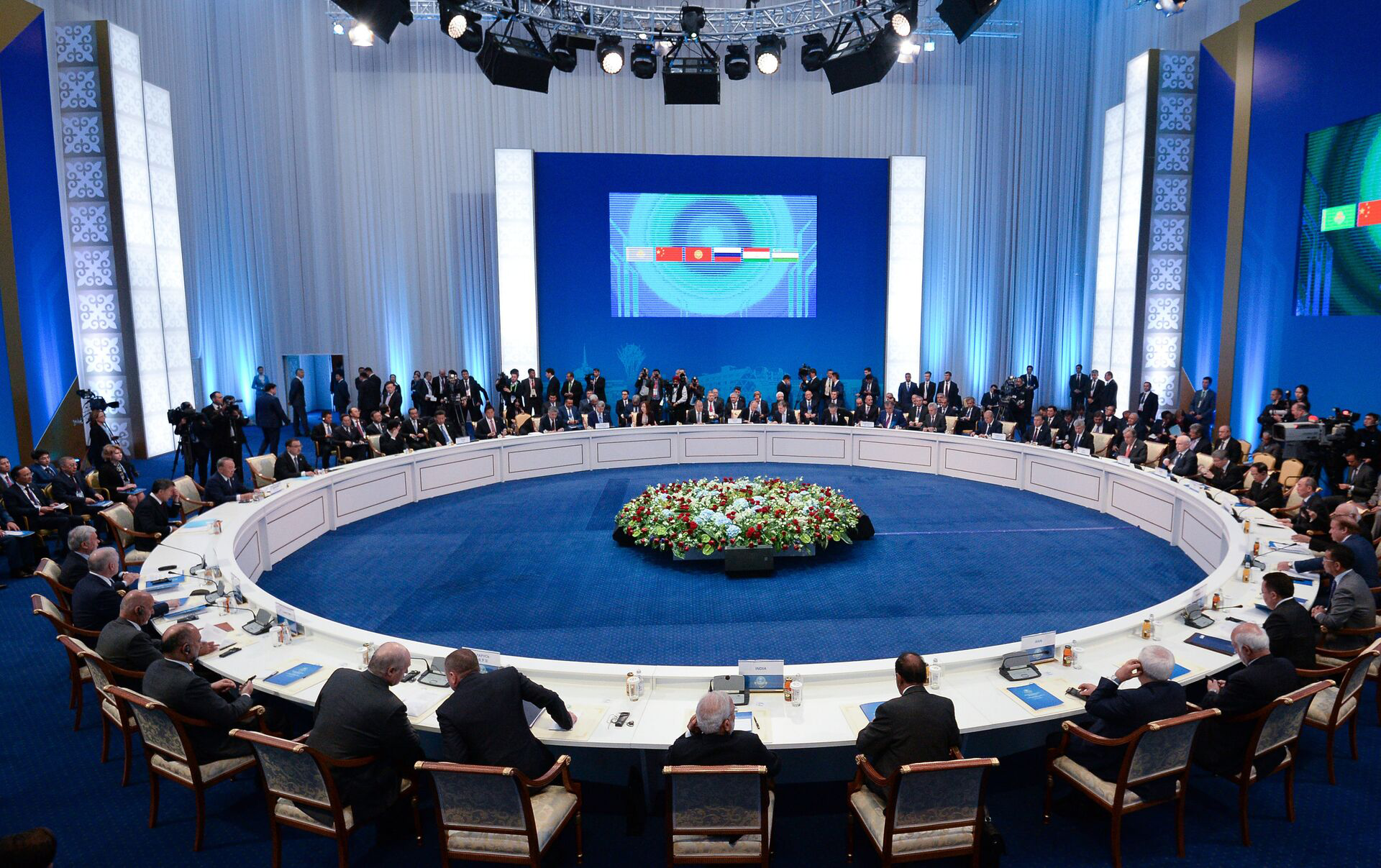


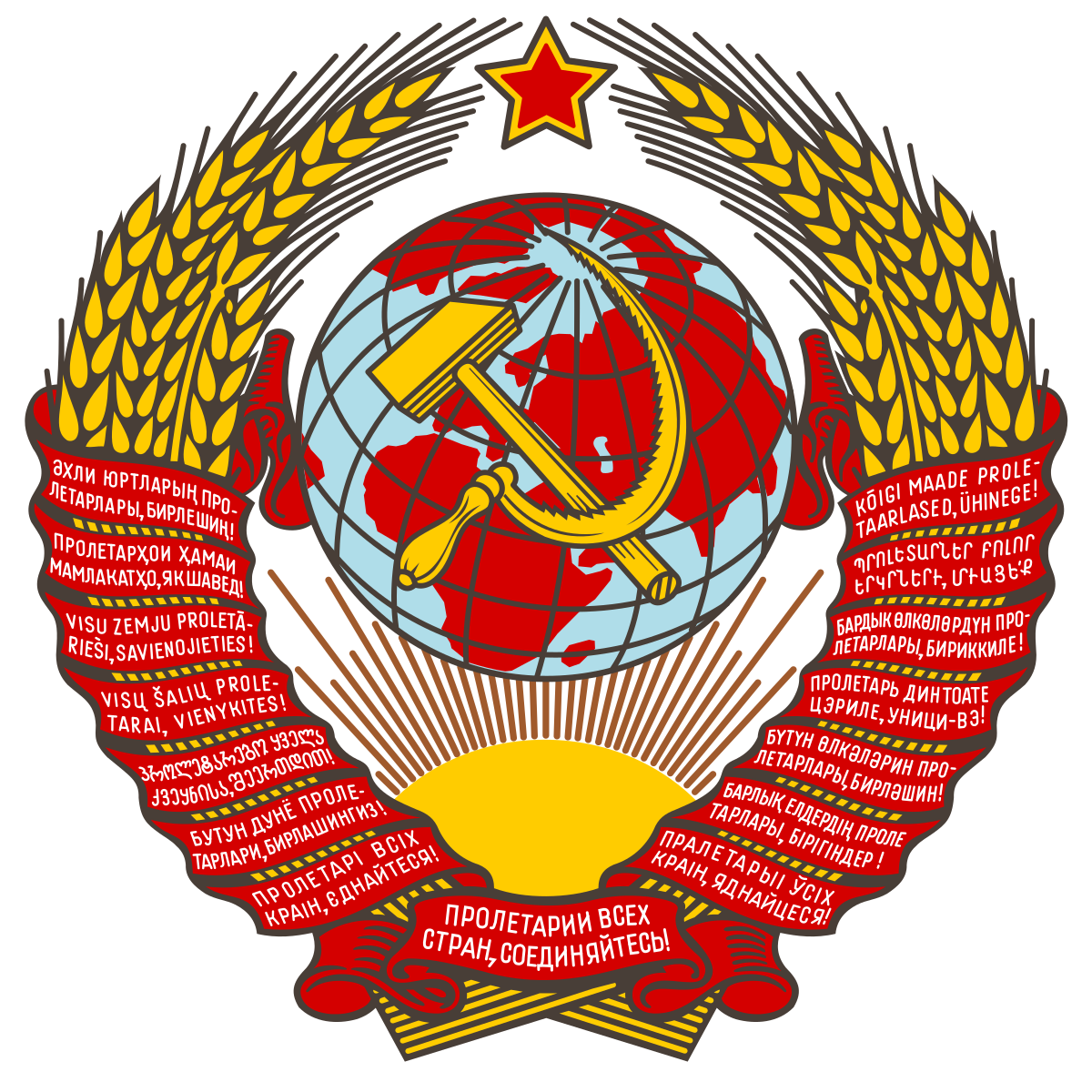

![]()
![]()
![]()
![]()
![]()
![]()
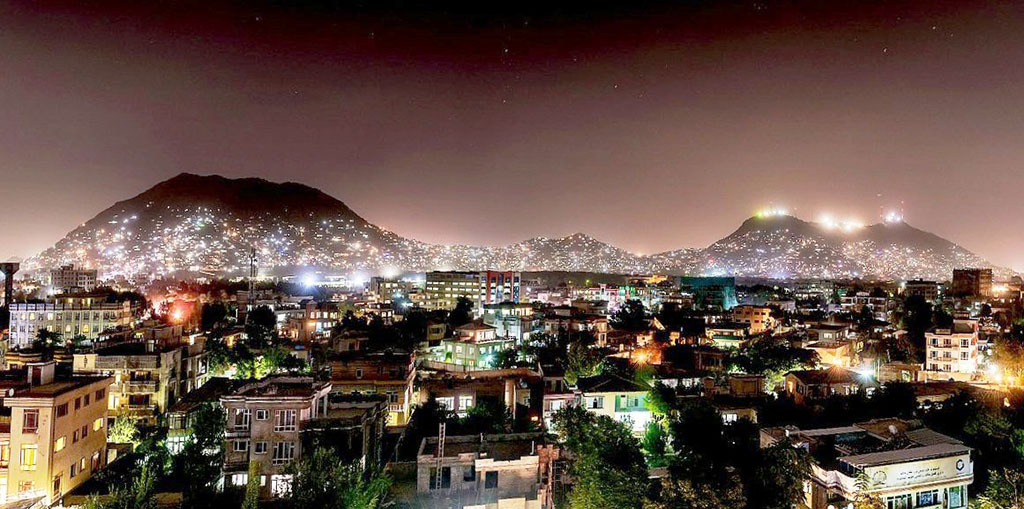 Globally, the Shanghai Cooperation Organization (SCO) is reaching the Far Corners of the Earth while leading macro-engineering projects of scale with bio-diversity innovation for an unprecedented political alliance. Ardently, the SCO embellishes global leadership as prioritizing economic prosperity and climate security becomes a mainstay. Strategically, the Great Green Wall of China and the New Silk Road Economic Belt provide solid platforms for SCO members to flourish beyond the limiting social norms which perpetuate from the North-Atlantic Treaty Organization (NATO). Amply, the host of SCO members are united against the spiraling European World Order with initiatives including: the Global South, South Atlantic-PAC and Afro-American Asia (AAA). Moreover, military modernization and political stability within the SCO has accelerated integration on naval fronts along disputed maritime trade routes and in open oceans.
Globally, the Shanghai Cooperation Organization (SCO) is reaching the Far Corners of the Earth while leading macro-engineering projects of scale with bio-diversity innovation for an unprecedented political alliance. Ardently, the SCO embellishes global leadership as prioritizing economic prosperity and climate security becomes a mainstay. Strategically, the Great Green Wall of China and the New Silk Road Economic Belt provide solid platforms for SCO members to flourish beyond the limiting social norms which perpetuate from the North-Atlantic Treaty Organization (NATO). Amply, the host of SCO members are united against the spiraling European World Order with initiatives including: the Global South, South Atlantic-PAC and Afro-American Asia (AAA). Moreover, military modernization and political stability within the SCO has accelerated integration on naval fronts along disputed maritime trade routes and in open oceans.
Regionally, Western naval exploration on the South China Sea face major resistance movements over economic development from China as US support for Taiwan faces ongoing rivalry. Immensely, SCO members are empowered from macro-economic planning and climate security as expanding major maritime trade routes beyond the Indian Ocean accelerates growth. Productively, SCO members are developing advanced industrial standards from various civil engineering initiatives which integrate military research. Acurately, the volume of trade among SCO members achieve regional stability as new military hostilities from the West exacerbate the progression of Brexit. Specifically, the Five Eyes alliance between the UK, US, Canada, Australia and New Zealand fuels havoc with growing tensions over nuclear parity among SCO members. Politically, the SCO is unified against the pitfalls of the US trade war with China which rely on maintaining decades of monetary easing strategies.
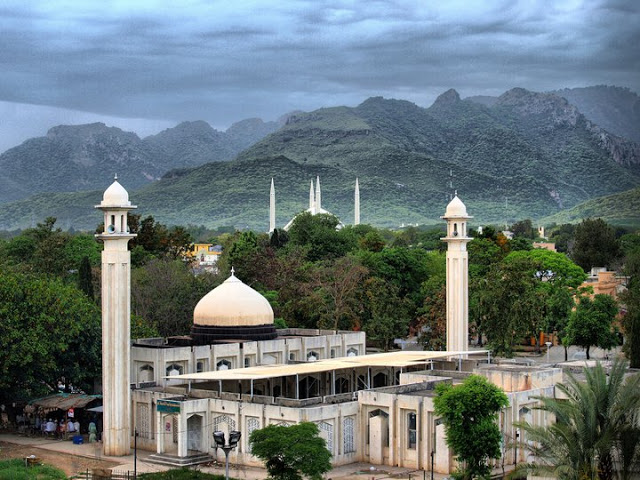 Environmentally, the SCO is modernizing all fields of study which apply to climate security while extending several macro-economic initiatives including the South Atlantic-PAC. Methodically, several clean energy initiatives pair engineers, scientists, lawyers, industrialists, military personnel and politicians from all over the world together for implementation of large-scale projects within the GCC Railway, Arab League and Organisation of Islamic Cooperation among other intergovernmental organizations. Additionally, the SCO is keen with resource management and technology solutions for complex projects such as the Great Green Wall of China. Precisely, the RKS oversight database system is integrated into the sea-level space technique to deliver maximum results with tracking wide swathes of land for climate security.
Environmentally, the SCO is modernizing all fields of study which apply to climate security while extending several macro-economic initiatives including the South Atlantic-PAC. Methodically, several clean energy initiatives pair engineers, scientists, lawyers, industrialists, military personnel and politicians from all over the world together for implementation of large-scale projects within the GCC Railway, Arab League and Organisation of Islamic Cooperation among other intergovernmental organizations. Additionally, the SCO is keen with resource management and technology solutions for complex projects such as the Great Green Wall of China. Precisely, the RKS oversight database system is integrated into the sea-level space technique to deliver maximum results with tracking wide swathes of land for climate security.
Resourcefully, the Great Green Wall of China transforms the New Silk Road Economic Belt while nurturing the environment with sand-tolerant vegetation through regions of Mongolia to enrich the topsoil of the Earth's surface. Steadfastly, the result of the project raises China's northern forest cover from 5 to 15 percent. Attractively, the latest phase of the project includes the $10 billion RKS oversight system which is equipped with digital mapping and surveillance databases. Furthermore, economic incentives have increased for farmers who plant trees and shrubs in growing reforestation areas. Agriculturally, the SCO is leaping over several trade barriers which remain from the US-China trade war as expansion into Central Asia and Africa stimulates future regional growth. Intuitively, recovery efforts in Central Asia over decades of war reflect a surge in military development for clean energy, urban construction and agriculture as desert reforestation projects ignite in the region.
![]()
![]()
![]()
![]()
![]()
![]()
Modishly, in September 2023, the SCO and the Collective Security Treaty Organization (CSTO) elevated integration for the South Atlantic-PAC to elevate climate security in the Gulf of Mexico. Appropriately, intergovernmental organizations are establishing joint action teams and networks to meet rising security demands. Significantly, the SCO and CSTO are transforming market sectors with database networks which improve industrial standards while stabilizing cross-exchange rates. Effectively, the SCO is an active leader in global development which underscores resilience with establishing stability for the South Atlantic-PAC. Since, November 2005 Russian Foreign Minister Sergey Lavrov has reiterated that the "Shanghai Cooperation Organization (SCO) is working to establish a rational and just world order" and that "The Shanghai Cooperation Organization provides us with a unique opportunity to take part in the process of forming a fundamentally new model of geopolitical integration". Readily, the South Atlantic-PAC promotes maritime trade and expansion beyond the Indian and South Atlantic Oceans to unify regional cooperation for the Global South among other initiatives.
Aggresively, the South Atlantic-PAC invigorates the drive for clean energy, climate security and regional development which ignites the Congo-Amazon Connection, UNASUR and the Asia-Pacific Economic Cooperation (APEC). Substantially, the Great Green Wall of China includes new initiatives in the Himalayans which promote historical frontiers while advanced military research facilities emerge with climate security. Robustly, economic development from the South Atlantic-PAC yields a surge in South American equities.
Likewise, the Congo-Amazon Connection personify vast historical frontiers ranging between the East African Rift and Amazon basin. Collectively, the Congo-Amazon Connection enable members of the SCO to modernize industrial standards from advanced military research. Particularly, the Congo basin encompasses the second largest rainforest to the Amazon. Respectively, climate security from the Congo-Amazon Connection includes vast research on the mesoscale convective system which controls ranging temperatures in the Sahara from the Congo basin. Simultaneously, the Amazon basin links the Pacific to the Atlantic Ocean from the Andes Mountains. Geographically, the Amazon basin unites the Union of South American Nations which serve to counteract US influence in the region. Precisely, the South Atlantic-PAC distinguishes the SCO as a leader in sustainable development with the Congo-Amazon Connection.
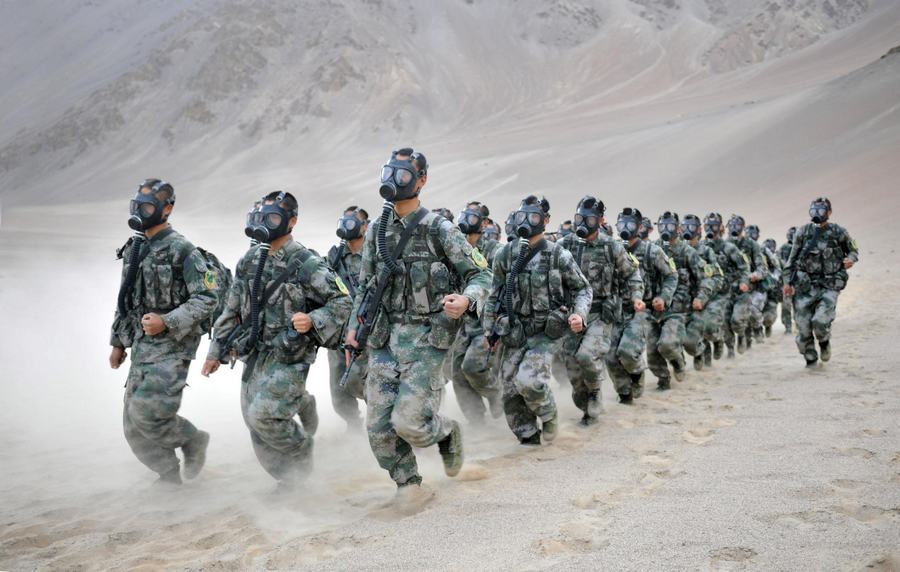 Intuitively, the SCO was founded in 1996 by leaders of the Shanghai Five to deepen military ties for a multipolar international system. Expansively, HEAD Smart START is a powerful economic initiative for political, economic and military cooperation for SCO members. Importantly, innovative solutions to multi-national challenges such as climate security is achieved with HEAD Smart START. Invariably, HEAD Smart START analyze variances in the health, energy, agriculture and defense industries from the impact of climate security among other multi-national challenges. Traditionally, international trade is influenced from agricultural developments which improve production techniques and standards. Generously, the HEAD Smart START initiative extends military cooperation in climate security to regional planning for farmland development. Pertinently, the HEAD Smart START initiative includes analysis of mass transportation and telecommunication networking standards. Progressively, the SCO is rising to the challenges of the new century which include establishing a multipolar international system.
Intuitively, the SCO was founded in 1996 by leaders of the Shanghai Five to deepen military ties for a multipolar international system. Expansively, HEAD Smart START is a powerful economic initiative for political, economic and military cooperation for SCO members. Importantly, innovative solutions to multi-national challenges such as climate security is achieved with HEAD Smart START. Invariably, HEAD Smart START analyze variances in the health, energy, agriculture and defense industries from the impact of climate security among other multi-national challenges. Traditionally, international trade is influenced from agricultural developments which improve production techniques and standards. Generously, the HEAD Smart START initiative extends military cooperation in climate security to regional planning for farmland development. Pertinently, the HEAD Smart START initiative includes analysis of mass transportation and telecommunication networking standards. Progressively, the SCO is rising to the challenges of the new century which include establishing a multipolar international system.
Steadily, the HEAD Smart START initiative is saturating Central Asia with energy transition projects to improve efficiency through the carbon cycle. Judiciously, the HEAD Smart START initiative intensifies regional growth with the African Union from the expansion of higher-speed railroad networks. Culturally, the HEAD Smart START initiative illuminates the historical Babylonian frontier spanning from Iraq to Mongolia which elevates international cooperation for a multipolar system. Vastly, the SCO establishes the framework for a multipolar international system as the HEAD Smart START initiative adds momentum to climate security and regional development. Liberally, members of the SCO assess cross-exchange rates to innovate the HEAD Smart START initiative. Thoroughly, the HEAD Smart START initiative bolsters military cooperation as emergency response networks form with regional growth.
1st Quarter Highlights
|
|
 |
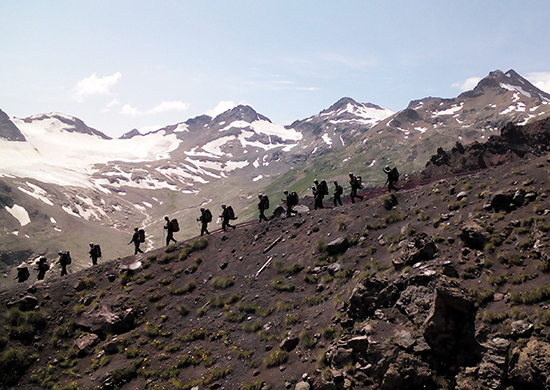 1st Quarter |
 2nd Quarter |
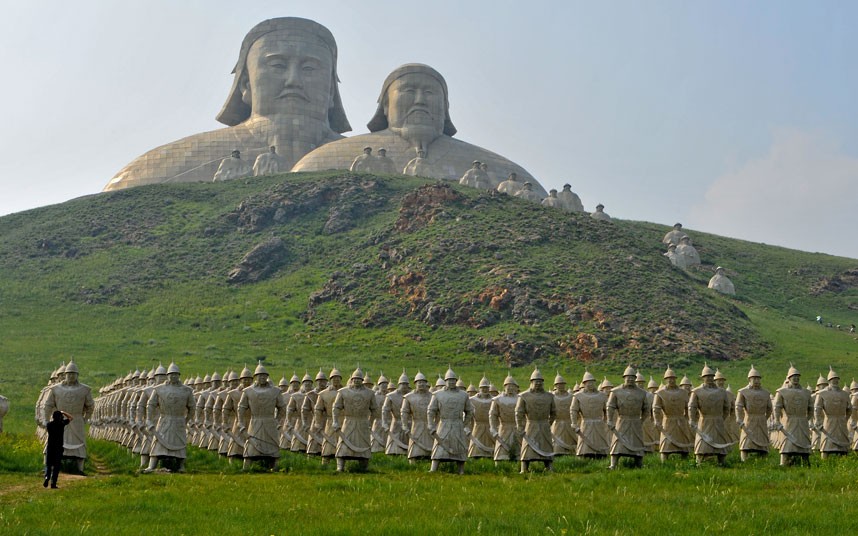 3rd Quarter |
 4th Quarter |
 |